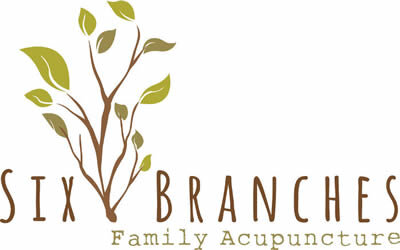Chinese medicine is more than acupuncture needles and herbs. It begins with a whole world view. That view is based in a reverence and understanding of nature and how the natural world works.
TCM's early doctors looked at the body as a microcosm of the natural environment. They saw that just as the seasons change, there are seasons of the body. They saw that while the land needs rain, too much rain can bring destruction. They saw that fire, while destructive, helps the ecosystem recycle and rejuvenate. In short, they saw that while nature is always changing, it will always strive for a state of balance.
They also saw that our bodies act like nature. Chinese Medicine's systematic approach to medicine is based on the concept of balance and the idea that the mind/body system has the ability to heal itself if balance is restored.
Traditional Chinese Medicine (TCM) is a complete medical system that has its own understanding of physiology (how the body functions) and its own diagnostic system. It has developed over the course of 3,000 years, based on direct empirical observation by its practitioners. While early TCM doctors long ago did not have sophisticated microscopes with the ability to observe the workings of cells or the presence of bacteria, they still made astute observations about the functional systems of the body and how the body relates to the world around it that continue to be applicable today.
The idea of balance in TCM is a lot like the concept of homeostasis in Western medicine. When your body is too cold, you shiver to warm up, when it is too hot, you sweat to cool down. This is how your body maintains balance. But what happens if there's a blockage that keeps your sweat pores from functioning correctly? You wouldn't be able to sweat and your body wouldn't be able to reach homeostasis on its own. Here's where TCM can step in. By regulating the function of the body, to open sweat pores for example, your body will be able to restore the balance or homeostasis that it is hard-wired to maintain.
Chinese Medicine's use today is not meant to displace Western Medicine, which has brought us many important advances in our understanding and treatment of disease. However, Chinese Medicine can provide a comprehensive approach to pain and common lifestyle diseases in our society, and is often helpful for problems for which Western Medicine has few options. While Western Medicine commonly offers either surgery or pharmaceutical drugs that correct or control local symptoms, Chinese Medicine looks at the body as a whole and corrects imbalances so that the body can actually heal itself over time.
Chinese Medicine is often used today to address chronic pain, functional pain, fertility in both men and women, menstrual irregularities, allergies, digestive problems, sleep issues, anxiety and depression, headaches, chronic fatigue and other auto-immune diseases, and addiction issues, among other conditions. It is also commonly used to address effects of stroke, side effects of chemotherapy, and post-operative pain.
There are a lot of concepts that we talk about in Chinese medicine that may be completely new and foreign to many people. These concepts are often strikingly simply once you understand them, so always ask for more information! The best place to start to understand the TCM mindset is with the concept of yin and yang.









